- Learning time
- 5 minutes
- First play time
- 30 minutes
Jeju Island
Designed by: Gun-Hee Kim,Jun-Hyup Kim,Yeon-Min Jung
Jeju Island (also published as Play Jeju) is a simple game for two to four players, themed around sightseeing on the eponymous holiday island in South Korea.
Players each have two counters, and these are stacked, along with their opponents counters and six neutral ones, on six spots on the small playing board board. Beside each spot is a stack of tiles featuring animals, plants and divers from the island.
On a turn, a player picks up a stack of counters including at least one of their own, and drops them off one by one on adjacent spots, choosing to go clockwise or anti-clockwise. After this, all players take the top tile from each stack where their counter is showing. If any player has landed by the stack with the Harubang statue, they may take an extra tile, or move the Harubang to another spot and take that top tile.
Beside the board is a deck of cards with points on, and five of these are visible. Instead of taking a normal turn, a player may trade in tiles they’ve collected for one of these cards – they all require different combinations of tiles. Some just give points, but many have a secondary benefit, allowing the player an instant Harubang bonus, or the ability to sweep the current array of points cards. Others feature a permanent object form the island, meaning the owner will be able to use this on subsequent turns to purchase cards without needing to trade in the relevant tile.
Once the deck of points cards is exhausted, or the tiles on the board have all been taken, the game is over. Players count up their points from cards, and add a point for every two unspent tiles (apart from divers, which are wild, and give no points at the end of the game). The player with the most points is of course the winner.
Jeju Island is probably going to appeal most to younger players, but it is a charming production with lovely tactile pieces and a relaxing way to spend half an hour.
The guru's verdict
-
Take That!
Take That!
If you're playing to win you may be able to engineer turns where only you receive benefits; you may also feel powerless to prevent an opponent nabbing a points card you had your eye on - but this is opportunism rather than planned beastliness. Overall an extremely gentle game.
-
Fidget Factor!
Fidget Factor!
Turns are very short - even if players decide to 'experiment' by picking up a stack and placing them to see who will benefit, and then retracting the move.
-
Brain Burn!
Brain Burn!
No maths and only the merest whiff of counting.
-
Again Again!
Again Again!
Jeju Island plays in a half-hour tops, and while there aren't acres of strategy to uncover, it's a pleasingly tactile and very gently tactical game with lovely pieces.

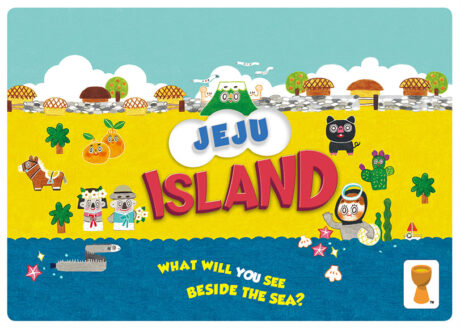
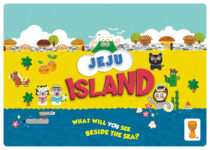
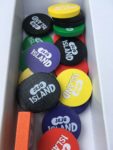
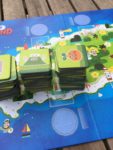
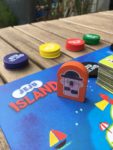
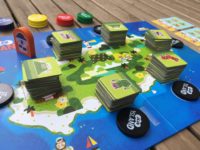
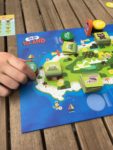


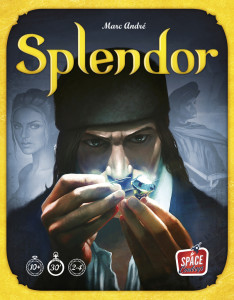
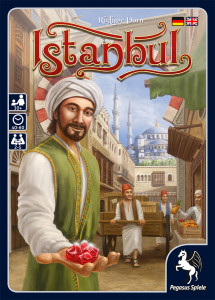
Joe says
This is a game, I suppose, for younger players - but I've played a few times with my daughters who are reluctant board gamers, and teenagers to boot, and they enjoyed it and beat me! Jeju Island beguiled me with its lovely naive artwork and chunky wooden pieces, and I really like the central mancala mechanism; picking up a stack of counters and dropping them off one by one as you move round the board. The points cards that give you permanent resources make for a nice tussle - if you choose to build up a bunch of these so that you can grab points cards later, you risk allowing your opponents access to the cards with more points straight off the bat. That said, there's no denying the huge part luck can play in the game, which will be off-putting to more serious competitors. I've yet to try Jeju Island with my grown-up gaming friends, and while it probably won't become a regular fixture, I suspect they too will find themselves charmed by its quirky artwork and gentle gameplay.